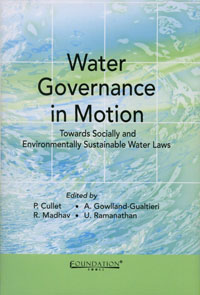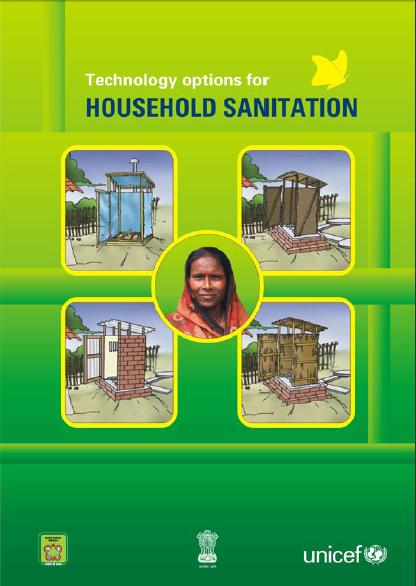/topics/wastewater
Wastewater
Water footprint assessments of dehydrated onion products of Jain Irrigation Systems Ltd – A report by IFC
Posted on 17 Dec, 2010 07:05 PMThis work on water footprint assessments represents a pioneering effort on documenting the water consumption in Jain Irrigation Systems Limited’s (JISL) production of dehydrated onions and of micro-irrigation systems. It also assesses the sustainability of this water consumption and formulate response strategies.
e-Disha November 2010 newsletter from Consortium for DEWATS Dissemination Society (CDD)
Posted on 29 Nov, 2010 10:59 AMArticle and Image Courtesy: Consortium for DEWATS Dissemination Society

The November edition of e-Disha published by the Consortium of DEWATS Dissemination Society (CDD) has the following highlights:
Compliance and monitoring of centralised wastewater treatment plants and the role of decentralised wastewater management, CSE, New Delhi
Posted on 23 Nov, 2010 04:22 PMOrganizer: Centre for Science and Environment (CSE)
Training program on 'Decentralised Wastewater Treatment and Reuse' , CSE, New Delhi
Posted on 23 Nov, 2010 03:00 PMOrganizer: Centre for Science and Environment (CSE)
Water governance in motion: Towards socially and environmentally sustainable water laws
Posted on 18 Nov, 2010 10:48 AM

Water Governance in Motion: Towards Socially and Environmentally Sustainable Water Laws focuses on the work undertaken by International Environmental Law Research Centre IELRC on water law reforms in India. It seeks to provide a broader understanding of the conceptual framework informing existing water law and ongoing reforms.
Evaluation of sanitation and wastewater treatment technologies: Case studies from India
Posted on 15 Nov, 2010 11:52 PMThe sanitation systems studied are spread across the country. The study goes to Pratapnagar in Bihar to evaluate the success of the septic tank to Asalthpur in Uttar Pradesh to study the Ecosan (UDDT) toilet. Other locations in India include Maharashtra, Gujarat, Kerala.
Technology options for household sanitation - A report by the Ministry of Rural Development and UNICEF
Posted on 15 Nov, 2010 10:14 PM As part of the Total Sanitation Campaign (TSC), the Ministry of Rural Development under the Rajiv Gandhi National Drinking Water Mission and UNICEF have brought out a compedium that details the various sanitation technologies available to above and below poverty line households .
As part of the Total Sanitation Campaign (TSC), the Ministry of Rural Development under the Rajiv Gandhi National Drinking Water Mission and UNICEF have brought out a compedium that details the various sanitation technologies available to above and below poverty line households .
The authors have divided the report into three subjects - the first being the need for household sanitation and the extent of the problem in rural India. The second section looks at sanitation technology in general with a focus on rural areas and technologies for different conditions. The third part deals with operation and maintenance of such technologies and includes a chapter on components of a toilet.
Status of water supply, sanitation and solid waste management in urban areas – A research study by CPHEEO (2005)
Posted on 11 Nov, 2010 10:16 PMThis study by the Central Public Health and Environmental Engineering Organisation (CPHEEO) assesses the status of water supply, sanitation and solid waste management in selected 300 cities and towns of India including all metropolitan cities and selected Class I and Class II urban centres. It estimates the requirement of funds for full coverage of population by these services in the urban areas of the country from 1999 to 2022 (at five yearly intervals). Overall, the study confirms the normal notion that the metropolitan cities are better provided for than the other size class of urban centres.
Wastelands Atlas of India by National Remote Sensing Centre and Ministry of Rural Development (2010)
Posted on 08 Nov, 2010 10:46 PMThis report presents the latest Wastelands Atlas, put together by the Ministry of Rural Development (MoRD) and National Remote Sensing Centre (NRSC) developed as a part of the “National Wasteland Monitoring Project”. The mapping efforts have generated valuable datasets on unutilized/vacant lands and their use in watershed and wastelands management.
The three sets of Wastelands Atlas of India by NRSC comprise -
News roundup (22 - 31 October 2010) :" India: Land of many cell phones, but fewer toilets"
Posted on 03 Nov, 2010 08:50 AMWastewater/Sanitation





